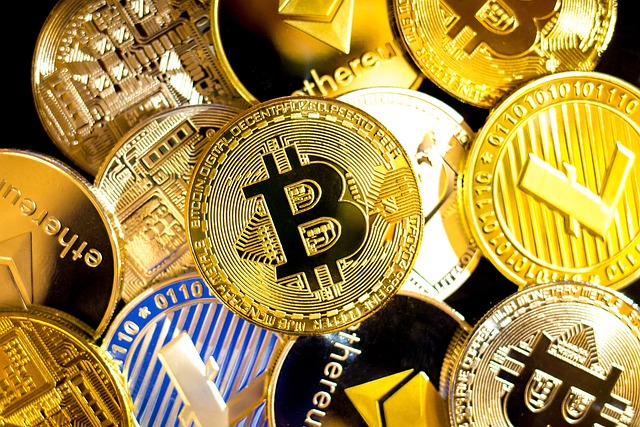Introduction
In recent years, Bitcoin and gold have become two of the most widely discussed assets for investors seeking to diversify their portfolios. Both assets are often viewed as stores of value, and they are frequently compared for their investment potential. However, the question remains: Which one is the better investment—Bitcoin or gold? This article delves into a detailed comparison between these two assets, considering factors like market volatility, investment returns, liquidity, scarcity, and more. We’ll explore how each asset performs in various economic climates and weigh the pros and cons of Bitcoin and gold.

Bitcoin: The Digital Asset Revolution
Bitcoin is the first and most well-known cryptocurrency, created in 2009 by an anonymous individual or group known as Satoshi Nakamoto. Unlike traditional currencies, Bitcoin operates on a decentralized network, utilizing blockchain technology to ensure security and transparency. It is not tied to any government or central bank, making it an appealing option for those seeking an alternative investment that is outside the control of traditional financial systems.
Bitcoin’s price volatility is one of its most defining characteristics. While this can lead to rapid profits, it can also result in significant losses. For those willing to accept the risks, Bitcoin offers the potential for high returns, especially for long-term investors. Over the past decade, the price of Bitcoin has surged dramatically, attracting both retail and institutional investors.
Gold: The Timeless Safe-Haven Asset
Gold has been regarded as a safe-haven asset for centuries. Its intrinsic value, scarcity, and historical track record as a store of wealth make it a go-to choice for investors seeking stability, especially in times of economic uncertainty. Gold is often viewed as an effective hedge against inflation, as its value tends to rise when the purchasing power of fiat currencies declines.
Unlike Bitcoin, gold is a physical asset, and its liquidity is well-established. It is easily bought, sold, and traded globally. In addition to its use as an investment vehicle, gold is also used in industries like jewelry, electronics, and aerospace, which further supports its demand.
Bitcoin vs Gold: Key Considerations
- Price Volatility
- Bitcoin’s market volatility is much higher than gold’s, which can either be an opportunity or a risk for investors. While Bitcoin can experience wild price swings, gold tends to move more slowly and predictably.
- Bitcoin’s price has been known to increase dramatically during times of financial uncertainty, but it can also fall sharply in the same context. Gold, on the other hand, is considered a more stable asset in times of global turmoil.
- Liquidity
- Both Bitcoin and gold are liquid assets, but Bitcoin’s liquidity is more accessible in the digital space. It can be traded instantly in the crypto markets, while gold may require physical handling, particularly when buying or selling in large quantities.
- However, gold’s global acceptance and long history of use make it a more reliable asset for some investors.
- Scarcity and Supply
- Bitcoin has a fixed supply of 21 million coins, making it a scarce asset. This built-in scarcity is one of the factors that give Bitcoin its value. As demand increases and the supply remains constant, Bitcoin’s price could continue to rise.
- Gold, too, is scarce, but unlike Bitcoin, it can still be mined, and new supplies are discovered regularly. Despite this, gold is generally considered a finite resource, and its value is tied to the supply-demand dynamics of the market.
- Wealth Preservation and Inflation Hedge
- Bitcoin is often seen as an effective hedge against inflation, particularly because it is decentralized and not subject to government control or manipulation. As the value of traditional currencies declines, Bitcoin has the potential to maintain or even increase its value.
- Gold has a long-standing reputation as an inflation-proof asset. Its historical stability has made it a go-to investment during periods of rising prices and financial instability.
- Security and Storage
- Bitcoin offers digital security through blockchain technology, but its storage requires understanding how wallets work and managing private keys. Without proper security measures, Bitcoin can be susceptible to theft.
- Gold’s physical form makes it more tangible but also requires secure storage, such as a safe or vault. Its security is tied to physical safeguards, and it is more challenging to store in large quantities without incurring significant costs.
Which One Is the Better Investment?
Both Bitcoin and gold have their merits and drawbacks as investment assets. For those seeking higher returns and are willing to accept higher risk, Bitcoin offers an attractive opportunity. It is particularly appealing to younger, tech-savvy investors who are comfortable navigating the complexities of the crypto market.
Gold, on the other hand, remains the choice for investors who prioritize stability, security, and wealth preservation. It is often favored by those seeking to hedge against economic volatility and inflation.
Ultimately, the decision between Bitcoin and gold depends on an individual’s investment goals, risk tolerance, and financial strategy. A diversified approach that includes both assets may also be an excellent option for those seeking to balance risk and reward in their portfolios.